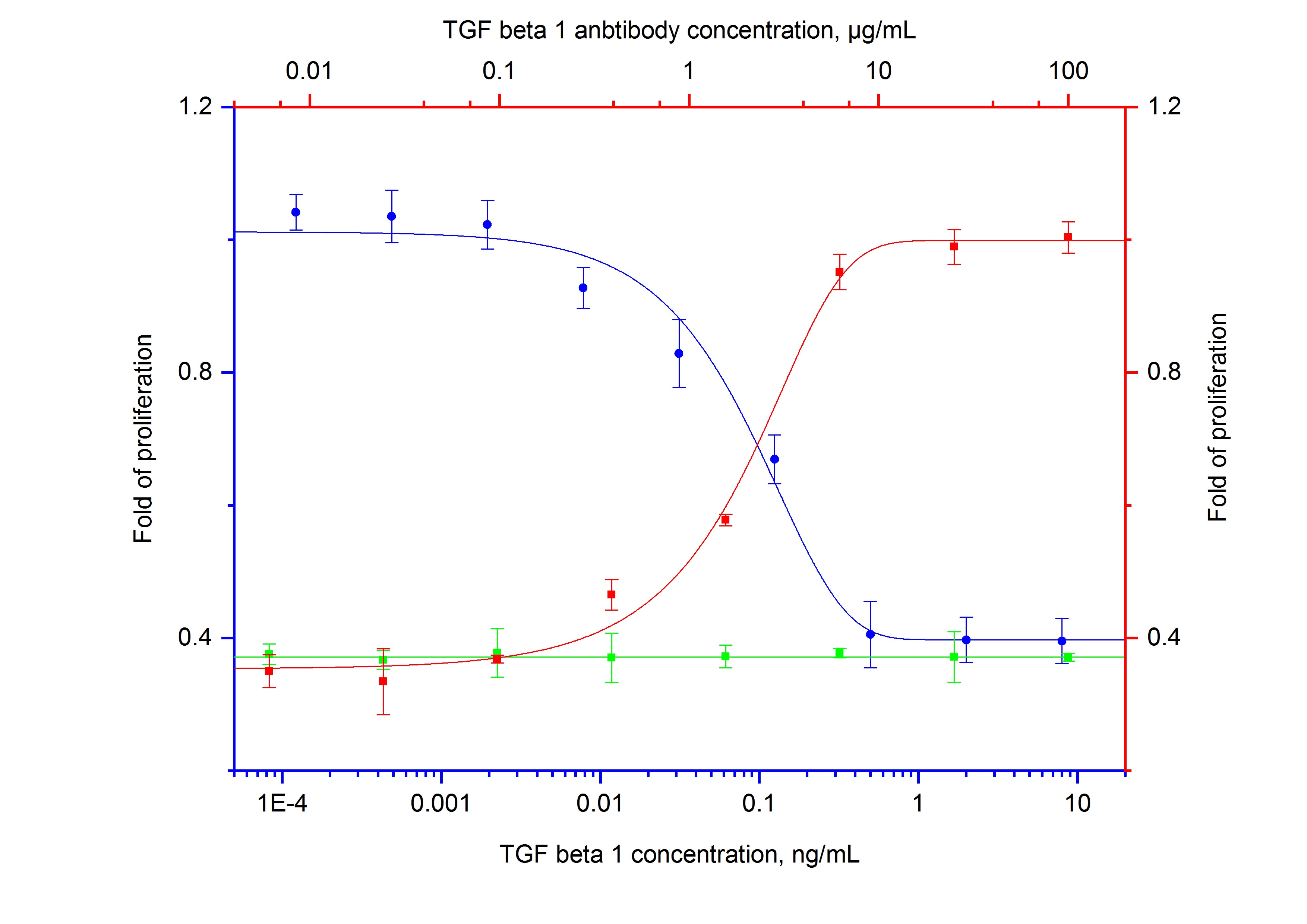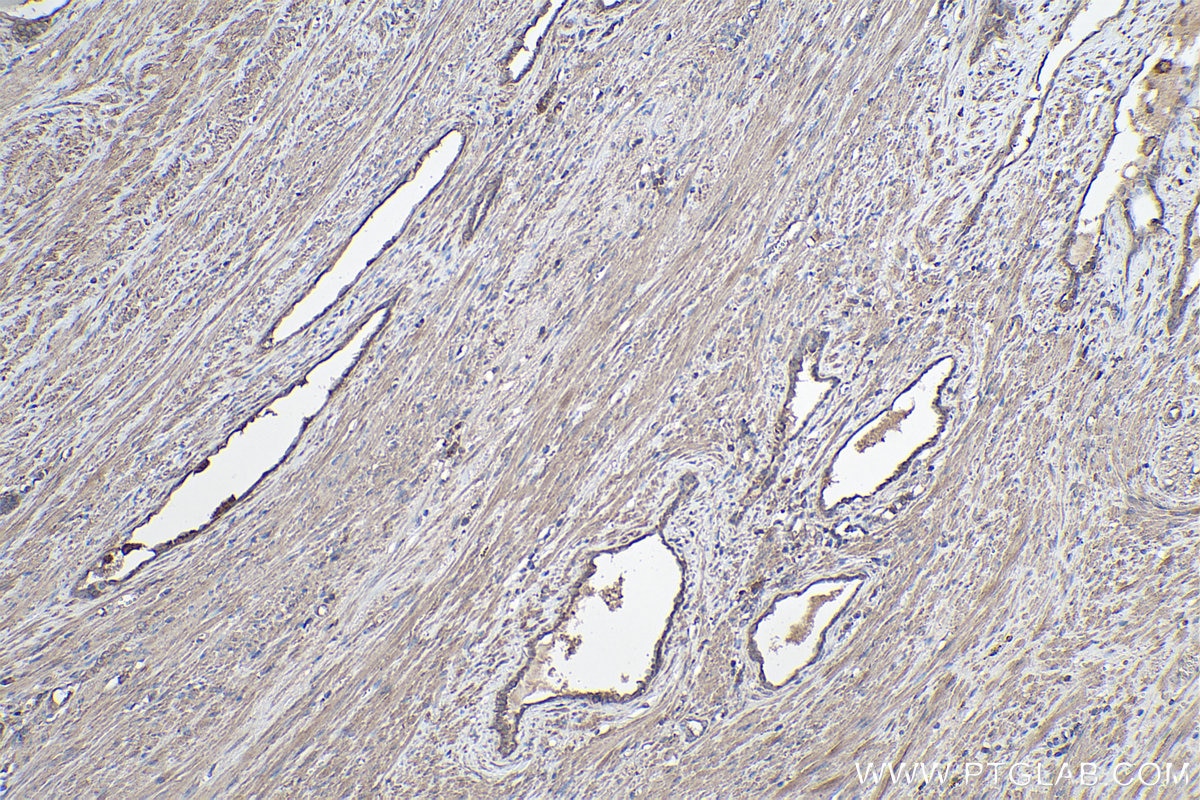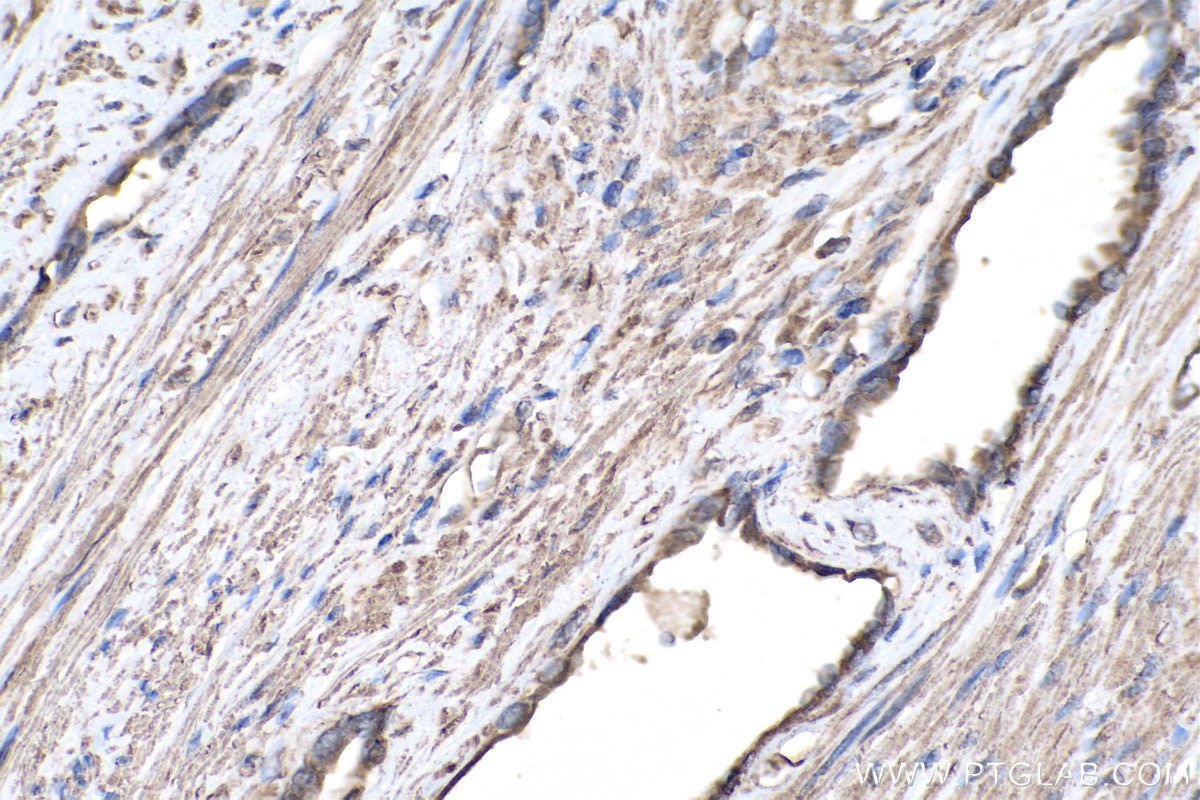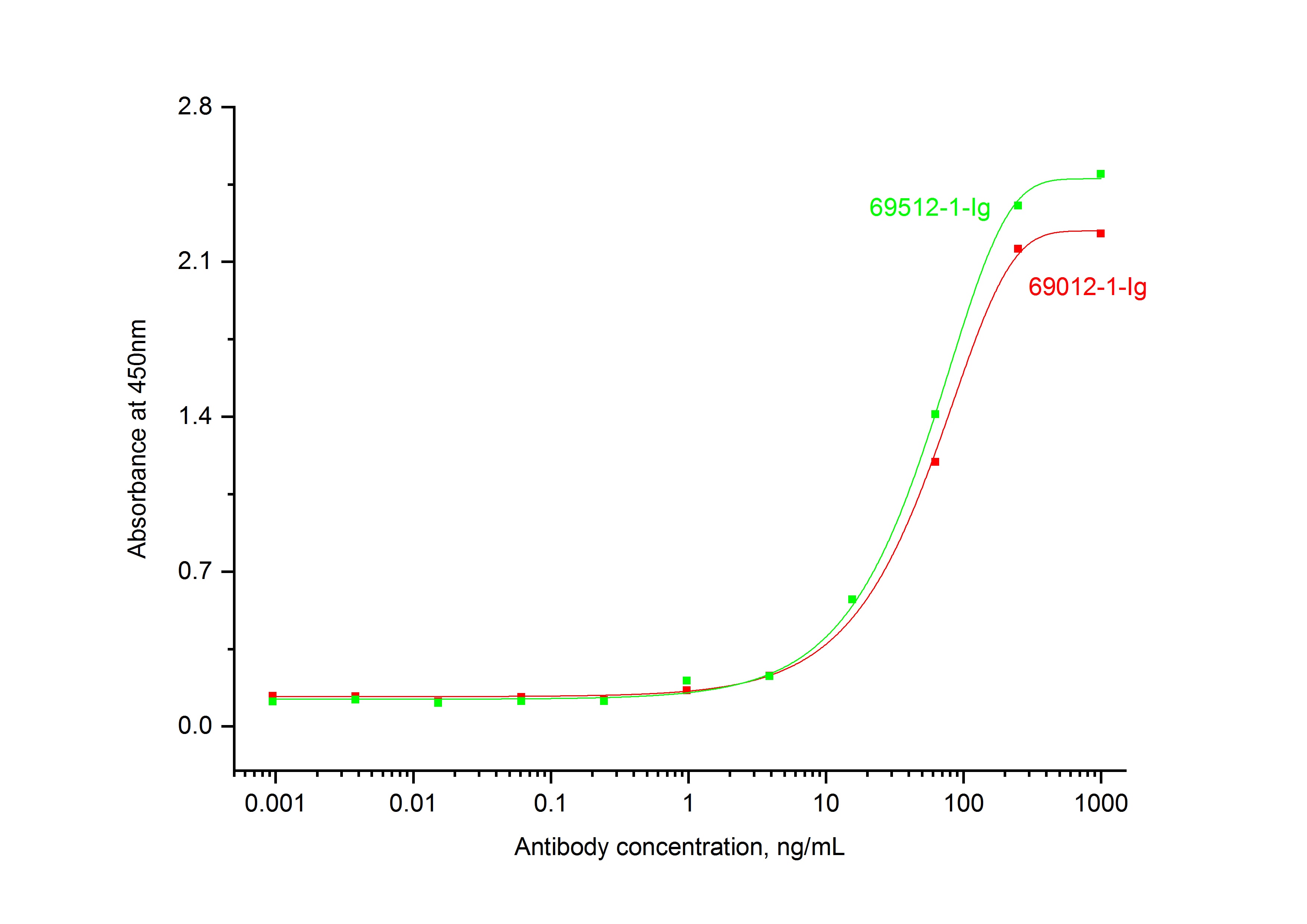NeutraKine® TGF beta 1 Monoklonaler Antikörper
NeutraKine® TGF beta 1 Monoklonal Antikörper für Neutralization, ELISA
Wirt / Isotyp
Maus / IgG1
Getestete Reaktivität
human
Anwendung
Neutralization, ELISA
Konjugation
Unkonjugiert
CloneNo.
1E3E9
Kat-Nr. : 69012-1-PBS
Synonyme
Produktinformation
69012-1-PBS bindet in Neutralization, ELISA NeutraKine® TGF beta 1 und zeigt Reaktivität mit human
| Getestete Reaktivität | human |
| Wirt / Isotyp | Maus / IgG1 |
| Klonalität | Monoklonal |
| Typ | Antikörper |
| Immunogen | human Humankine TGF beta 1 protein HZ-1011 |
| Vollständiger Name | transforming growth factor, beta 1 |
| Berechnetes Molekulargewicht | 44 kDa |
| Gene symbol | TGFB1 |
| Gene ID (NCBI) | 7040 |
| Konjugation | Unkonjugiert |
| Form | Lyophilized Powder |
| Reinigungsmethode | Protein-G-Reinigung |
| Lagerungspuffer | PBS Only |
| Endotoxin | <0.1 EU/μg |
| Wiederherstellung | This product was lyophilized from a 0.2 μm filtered solution in PBS. Reconstitute at 1.0 mg/mL in sterile H2O before use. |
| Stability and Storage | Lyophilized antibodies are stable for 1 year from the date of receipt if stored between (-20°C) and (-80°C). Upon reconstitution we recommend that the solution can be stored at (4°C) for short term or at (-20°C) to (-80°C) for long term. Repeated freeze thaw cycles should be avoided with reconstituted products. |
Hintergrundinformationen
TGFB, also named as LAP and TGFB1, is a multifunctional peptide that controls proliferation, differentiation, and other functions in many cell types. TGFB acts synergistically with TGFA in inducing transformation. It also acts as a negative autocrine growth factor. Dysregulation of TGFB activation and signaling may result in apoptosis. Many cells synthesize TGFB and almost all of them have specific receptors for it. TGFB positively and negatively regulates many other growth factors. It plays an important role in bone remodeling as it is a potent stimulator of osteoblastic bone formation, causing chemotaxis, proliferation and differentiation in committed osteoblasts. It is highly expressed in bone. Mutation of TGFB are the cause of Camurati-Engelmann disease (CED) which known as progressive diaphyseal dysplasia 1 (DPD1).
This antibody can be used to neutralize the bioactivity of TGF beta 1.









